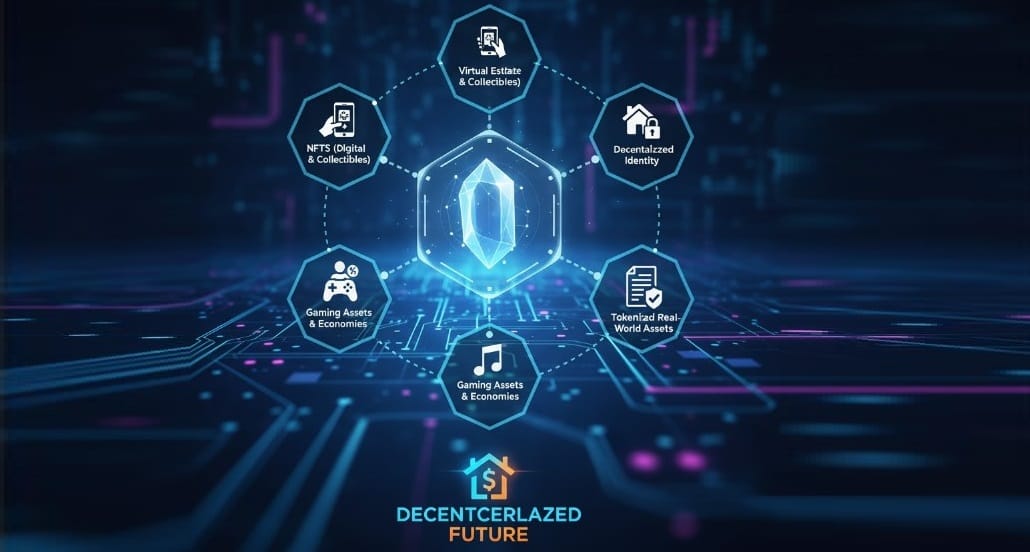Introduction
The concept of ownership is evolving rapidly in the digital era. Thanks to blockchain technology, NFTs, and Web3 platforms, digital ownership is becoming secure, verifiable, and tradable, creating entirely new opportunities for creators, investors, and users.
This article explores the emerging trends, technologies, and opportunities shaping the future of digital ownership in 2025 and beyond.
🔗 Blockchain: The Foundation of Digital Ownership
Blockchain technology provides the infrastructure for secure and verifiable ownership in the digital space.
- Immutable records: Every transaction or ownership transfer is permanent and transparent.
- Decentralization: Ownership isn’t controlled by a single entity; it’s verified by a distributed network.
- Smart contracts: Automate ownership transfers, royalties, and agreements without intermediaries.
⚡ Tip: Blockchain ensures authenticity, preventing duplication or fraud in digital assets.
🖼️ NFTs: Redefining Digital Assets
Non-Fungible Tokens (NFTs) are transforming the way we buy, sell, and prove ownership of digital assets.
- Unique digital items: From art to music, NFTs provide verifiable proof of ownership.
- Royalties for creators: Smart contracts allow automatic payments whenever an NFT is resold.
- Virtual real estate & collectibles: Digital worlds, games, and metaverse platforms now feature ownership as a tradable asset.
💡 Tip: NFTs empower creators to monetize digital content in ways never possible before.
🌐 Web3 and Decentralized Ownership
Web3 introduces user-centric ownership models, where individuals truly control their data and digital assets.
- Decentralized identity: Users own and control personal data without relying on centralized platforms.
- DAO participation: Ownership extends to governance, allowing users to influence project decisions.
- Tokenized ecosystems: Access, membership, and rewards can all be tied to blockchain-based tokens.
⚡ Tip: Web3 shifts value from centralized platforms to users, creating new opportunities for monetization and influence.
💡 Why This Matters for the Future
- Empowers creators and users: True ownership means control over monetization and distribution.
- Reduces intermediaries: Smart contracts automate agreements, reducing fees and friction.
- Unlocks new markets: Digital art, virtual real estate, in-game assets, and online communities become tradeable assets.
- Builds trust: Blockchain verification ensures authenticity and prevents fraud.
🧠 Key Challenges Ahead
- Regulatory uncertainty: Governments are still defining digital ownership laws.
- Scalability: Blockchain networks must handle increasing users and transactions efficiently.
- Environmental concerns: Energy-intensive blockchains must evolve toward sustainable solutions.
- Education: Users and creators need guidance to navigate the complexities of NFTs and Web3.
✅ Conclusion
The next frontier of digital ownership is transforming how we create, buy, sell, and govern digital assets. From NFTs and blockchain to Web3 ecosystems, the future offers unprecedented opportunities for creators, investors, and everyday users.
By understanding these emerging technologies, individuals can participate confidently in the digital economy and leverage new forms of value and control over their online presence.
🚀 Call to Action
- Explore blockchain platforms and NFT marketplaces to understand digital ownership.
- Learn about Web3 tools and decentralized apps to gain firsthand experience.
- Consider how digital ownership could create income opportunities or enhance your creative projects.
- Stay informed about regulatory developments and best practices in 2025.
The digital frontier is expanding — those who understand ownership, control, and value will lead the next wave of online innovation.


